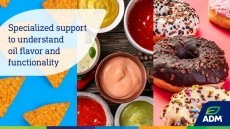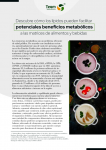Low saturated fat intake associated with higher stroke mortality
The study, published by the American Journal of Clinical Nutrition, suggests that a very low dietary intake of saturated fatty acids (SFA) is associated with an increased risk of stroke.
"SFA intake was inversely associated with mortality from stroke. This inverse association was similarly observed for intraparenchymal hemorrhage and ischemic stroke,” wrote the researchers.
Clear risks?
Saturated fat intakes are known to correlate with blood cholesterol levels – a strong risk factor for heart disease. However, the associations between SFA intake and stroke are less clear. Ischemic stroke is considered to be an atherosclerotic disease in Western societies; however research suggests that other pathways, like arteriosclerosis, may also be implicated in ischemic stroke.
The aim of the new research was to test the associations between SFA intake and the risks of cardiovascular disease mortality in Japan. The research forms part of the much larger Japan Collaborative Cohort Study for Evolution of Cancer Risk (JACC Study) – an ongoing population study of over 110,000 people.
Of the 110,000 in the main study, 58,453 also completed a food-frequency questionnaire, and were followed up for just over 14 years to check for associations between dietary SFA intake and stroke mortality.
Inverse association
The study observed that SFA intake was inversely associated with overall stroke mortality, with associations especially strong for intraparenchymal hemorrhage and ischemic stroke.
Surprisingly the population study also observed that decreasing SFA intake by increasing polyunsaturated fatty acids (PUFA) was “significantly positively associated with stroke mortality.”
The lowest incidence of stroke mortality was observed in people with SFA intake of between 18 and 40g SFA per day (n=148 deaths), reducing SFA intake to below 18g was seen to increase the relative risk of stroke by nearly 20 per cent (n=177 deaths for between 15.4 and 17.9 grams per day). An intake of less than 11g of SFA per day was associated with an increased risk of almost 66 per cent (n=245 deaths).
In discussing their results, the researchers speculate that saturated fats could have different impacts in larger arteries compared to small vessels - suggesting that although in larger vessels saturated fats can increase the risks of atherosclerotic plaques, but in smaller vessels low SFA levels could lead to angionecrosis through a reduction of smooth muscles cells and increased fragility of vascular walls.
Recommendations
If confirmed, these observations could call in to question Western societies current attitude towards saturated fats - If lower intake is not always better, then the American Heart Association’s daily intake recommendations for a maximum of 16g per day for an average person could be called into question.
However, any potential risks of low SFA intake on stroke risk must be played off against the strong links between high SFA intakes and risks to heart disease.
“Assuming that the inverse association between SFA and stroke mortality is causal, it would nevertheless be inappropriate to recommend an increased consumption of SFA-containing products…, because it might increase population levels of total cholesterol and the risk of IHD,” stated the researchers.
Amy Thompson, senior cardiac nurse at the British Heart Foundation told FoodNavigator.com: “In Japan, strokes caused by blood clots in the brain generally affect different arteries [compared to Western countries]. We also know that there are striking differences in diet and overall lifestyle between the two populations, so it is difficult to apply the results of the study directly.”
Thompson went on to add: “This study reminds us that there are different types of strokes, and causes of strokes.
“There are many dietary factors that are important to help reduce the risk of stroke.”
Source: American Journal of Clinical Nutrition
Published online ahead of print, doi: 10.3945/ajcn.2009.29146
“Dietary intake of saturated fatty acids and mortality from cardiovascular disease in Japanese: the Japan Collaborative Cohort Study for Evaluation of Cancer Risk Study”
Authors: K. Yamagishi, H. Iso, H. Yatsuya, N. Tanabe, C. Date, S. Kikuchi, A. Yamamoto, Y. Inaba, A. Tamakoshi











